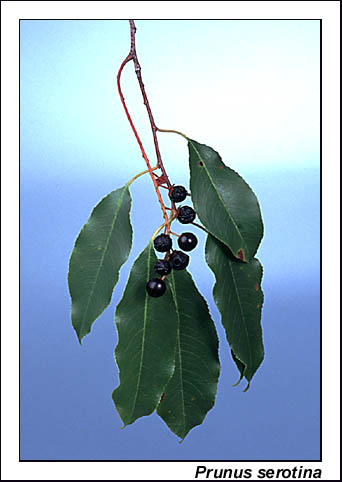Black Cherry
Prunus serotina
Family: Rosaceae
Natural History

Leaves and fruit of black cherry | Photo credit: Larry Korhnak, University of Florida
The black cherry is the largest native cherry, and the only one of commercial value. Rarely offered in nursery catalogs, the black cherry is more of a "keep what you already have" tree when it comes to landscaping. Its beautiful, fragrant flower attracts songbirds. Its fall color makes it a highly desirable shade tree. It is also known as wild black cherry, rum cherry, and mountain black cherry.
Black cherry is a potentially-hazardous tree. The autumn twigs and leaves are potentially fatal. If eaten, the hydrocyanic acid contained in the reddish plant tissue and inner bark can be a poisonous toxin. When combined with stomach acid, a deadly poison called cyanide is released, and can be lethal. Horse and cattle owners should take measures to ensure the safety of their animals.
